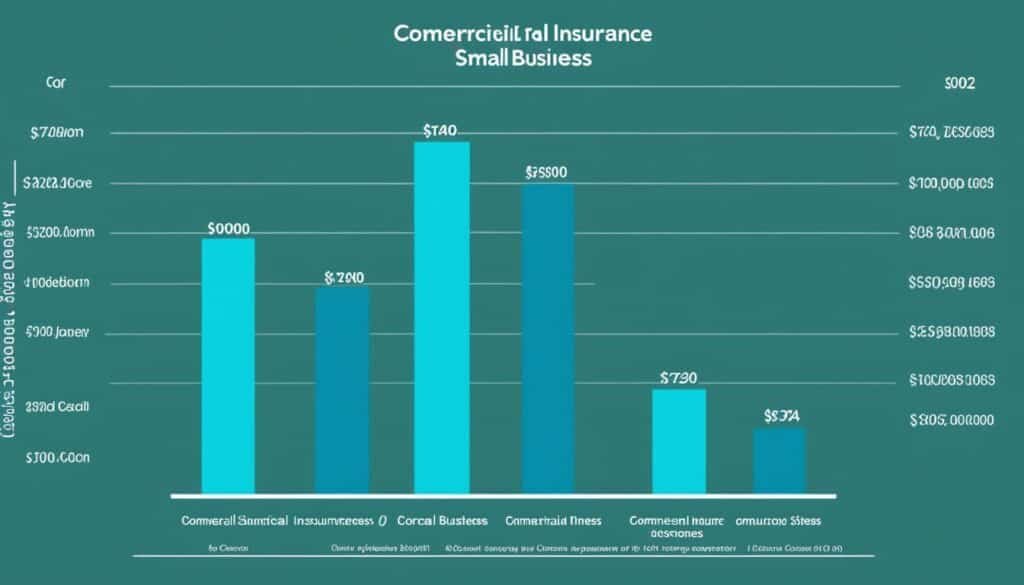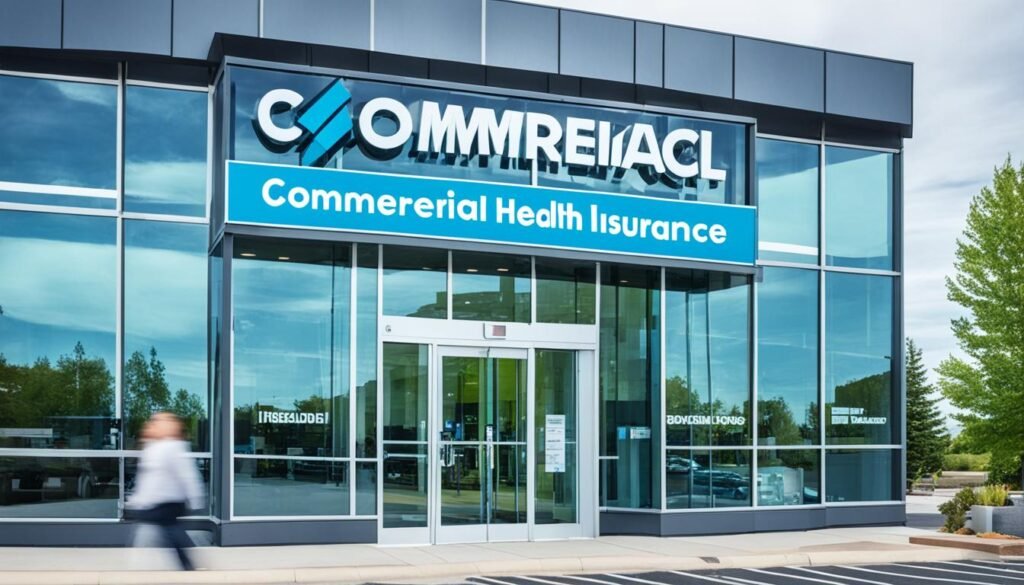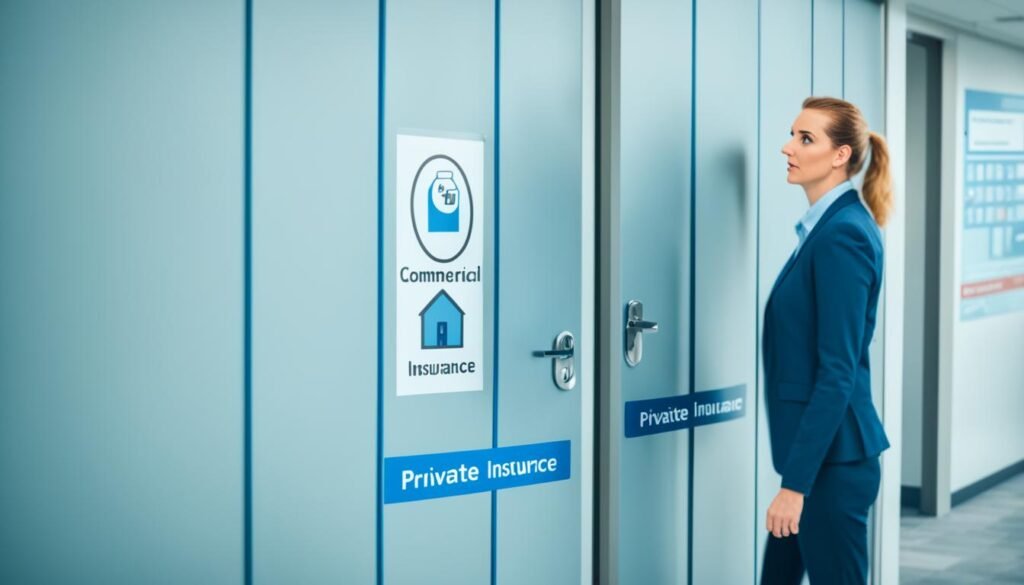What Is Commercial Insurance, also known as business insurance, is a type of insurance coverage designed to protect businesses from losses and liabilities. It provides coverage for unexpected events that can occur during normal business operations, such as lawsuits, accidents, or natural disasters. There are various types of commercial insurance policies available to cater to different business needs, including general liability insurance, commercial property insurance, and commercial auto insurance. Small businesses can greatly benefit from having commercial insurance to safeguard their operations and assets.
Key Takeaways: What Is Commercial Insurance
- Commercial insurance, also known as business insurance, is designed to protect businesses from losses and liabilities.
- It provides coverage for unexpected events during normal business operations.
- There are different types of commercial insurance policies available, including general liability, commercial property, and commercial auto insurance.
- Small businesses can greatly benefit from having commercial insurance to protect their operations and assets.
- Having commercial insurance offers peace of mind and helps ensure legal compliance.
Why is Commercial Insurance Vital for US Small Businesses?
Commercial insurance plays a crucial role in protecting small businesses in the United States. It provides essential coverage to minimize financial risks and ensure the smooth operation of a business. By securing commercial insurance, small business owners can effectively protect themselves, their assets, and their employees from potential liabilities and losses.
Protect Your Business and Assets
Commercial insurance serves as a key safeguard against personal financial exposure. In the event of a loss or liability, commercial insurance provides the necessary coverage to protect the business owner and their assets. This ensures that the business owner’s personal finances remain separate from the financial obligations and risks of the business.
Liability Coverage
One of the critical aspects of commercial insurance is its liability coverage. Small businesses face various potential liabilities, such as bodily injury to third parties, property damage, or data breaches. Commercial insurance protects businesses by offering liability coverage for these risks, ensuring that they are adequately protected against potential lawsuits, accidents, or damages caused by their business operations.
Diverse Coverage Options
Commercial insurance provides small businesses with a wide range of coverage options to choose from, catering to their specific needs. Whether the business requires general liability coverage, commercial property insurance, or any other type of coverage, commercial insurance policies offer flexible options to ensure comprehensive protection. Small businesses can select the coverage options that align with their industry, operations, and risk profile, providing them with the peace of mind they need to focus on their business.
Did You Know?
Having commercial insurance is often a requirement for entering into contracts with clients or securing leases for business premises.
With the right commercial insurance coverage, small businesses can confidently pursue growth opportunities and navigate potential challenges without the fear of significant financial setbacks. It is an essential investment that helps protect businesses, their owners, and their employees, ensuring their long-term success.
Having discussed the vital role of commercial insurance for small businesses, the next section will explore the different types of commercial insurance policies available.
Types of Commercial Insurance Policies

When it comes to protecting your business, it’s important to have the right insurance coverage in place. There are various types of commercial insurance policies designed to suit different business needs. Let’s explore some common types:
- Commercial General Liability Insurance: This type of insurance provides coverage for bodily injury, property damage, medical expenses, and lawsuits. It protects your business from potential liabilities arising from accidents or injuries that occur on your premises or as a result of your business operations.
- Professional Liability Insurance: Also known as errors and omissions insurance, professional liability insurance is designed for businesses that provide services. It offers coverage for mistakes, negligence, or malpractice claims that may arise from the professional services you provide.
- Commercial Property Insurance: This insurance policy protects your physical property, such as equipment, inventory, and furniture, from damage or loss due to events like fire, theft, or natural disasters.
- Home-Based Businesses: For businesses operated from home, additional coverage may be required for equipment and inventory that is not covered by standard homeowner’s insurance. It’s important to ensure that your home-based business has adequate protection.
- Product Liability Insurance: If your business is involved in manufacturing or selling products, product liability insurance is crucial. It covers costs associated with damages caused by your products, such as injuries, illnesses, or property damage.
- Commercial Auto Insurance: If your business uses vehicles for business purposes, commercial auto insurance is essential. It provides coverage for damages, accidents, and injuries involving business-owned vehicles.
- Business Interruption Insurance: This insurance policy provides compensation for lost income and operating expenses if your business is unable to operate due to a covered event, such as a fire or a natural disaster. It helps your business recover financially during the period of interruption.
Having the right mix of commercial insurance policies ensures that your business is protected against various risks and liabilities. It’s important to carefully assess your business needs and work with an insurance professional to determine the coverage options that best suit your operations.
| Insurance Policy | Coverage |
|---|---|
| Commercial General Liability Insurance | Bodily injury, property damage, medical expenses, lawsuits |
| Professional Liability Insurance | Mistakes, negligence, malpractice |
| Commercial Property Insurance | Physical property damage or loss |
| Home-Based Businesses | Additional coverage for equipment and inventory |
| Product Liability Insurance | Damage costs caused by products |
| Commercial Auto Insurance | Damage, accidents, injuries involving business vehicles |
| Business Interruption Insurance | Compensation for lost income and operating expenses during interruptions |
How Much Does Commercial Insurance Cost?

The cost of commercial insurance can vary depending on several factors that businesses should consider when obtaining coverage. These factors include the size and nature of the business, the coverage needs, the location, and the associated risks involved. Let’s explore these factors in more detail.
The Business Size and Coverage Needs
The size of the business and its coverage needs play a significant role in determining the cost of commercial insurance. Business size can refer to the number of employees, annual revenue, or physical assets the business possesses. Generally, larger businesses with more employees and higher revenue will require broader coverage, resulting in higher premiums.
Location and Associated Risks
Location and the associated risks are crucial factors affecting commercial insurance costs. Different locations may have varying levels of risks, such as natural disasters or high crime rates, which can impact insurance rates. For example, a business located in an area prone to hurricanes might face higher premiums to account for the increased risk of property damage.
Claims History and Industry
The business’s claims history and industry also influence the cost of commercial insurance. A business with a history of frequent claims or high claim amounts may be viewed as higher risk by insurance providers, resulting in higher premiums. Moreover, the industry in which a business operates can affect insurance rates. Industries with higher levels of inherent risks, such as construction or healthcare, may have higher insurance costs.
Deductible Choice
Another factor to consider is the deductible choice. The deductible is the amount a business must pay out of pocket before the insurance coverage kicks in. Choosing a higher deductible can lower the premium cost, but it also means that the business is responsible for a greater portion of any claims made. Businesses should carefully assess their financial capabilities and risk tolerance when deciding on a deductible.
To get the best value for their commercial insurance, businesses are advised to obtain quotes from multiple insurance providers. Comparing costs, coverage options, and policy terms can help businesses make an informed decision that fits their budget and coverage needs.
<!–
| Factors Affecting Commercial Insurance Cost |
|---|
| Business Size |
| Location and Associated Risks |
| Claims History |
| Industry |
| Deductible Choice |
–>
How to Obtain Commercial Insurance?

In order to obtain commercial insurance for your business, it is advisable to work with a reputable insurance agency or insurance agent who specializes in commercial insurance. These professionals have the knowledge and expertise to guide you through the process and ensure that your insurance needs are adequately met.
When working with an insurance agency or agent, they will help you evaluate your specific insurance needs based on the nature of your business. This assessment will take into consideration factors such as the size of your business, the industry you operate in, and the associated risks.
Once your insurance needs have been established, the insurance agency or agent will assist you in selecting the appropriate coverage for your business. They will explain the different types of commercial insurance policies available and help you choose the ones that best suit your operations and provide comprehensive protection.
Once you have chosen the coverage, the insurance agency or agent will guide you through the process of submitting the necessary documentation to obtain the insurance policy. This may include completing application forms, providing business information, and submitting any supporting documents required.
One convenient option provided by insurance agencies is the availability of online platforms for applying and obtaining commercial insurance. Many insurance agencies have streamlined their application process, allowing businesses to submit their applications online and receive quotes in a timely manner.
It is important to work with a reputable and licensed insurance professional to ensure that your business’s insurance needs are properly addressed. By partnering with experienced professionals in the insurance industry, you can obtain the right coverage and enjoy the peace of mind that comes with knowing your business is protected.
Benefits of Commercial Insurance

Commercial insurance offers numerous benefits to businesses. By providing protection against potential financial losses and liabilities that can arise from unexpected events, commercial insurance helps protect your business and minimize financial risks. With the appropriate coverage in place, businesses can avoid significant out-of-pocket expenses and navigate challenging situations with greater ease.
One of the key advantages of commercial insurance is the peace of mind it provides. With the knowledge that your business is adequately protected, you can focus on running your operations without constant worry about unforeseen events. This peace of mind allows you to make decisions confidently and invest more energy into growing your business.
Moreover, commercial insurance ensures legal compliance. Many types of commercial insurance are required by law, depending on the nature of your business. Complying with these regulations not only helps you avoid potential penalties but also demonstrates your commitment to operating ethically and responsibly.
“Having commercial insurance is like having a safety net for your business. It provides financial protection, ensures legal compliance, and offers peace of mind.”
Whether you are a small, medium, or large business, commercial insurance is an essential tool for safeguarding your operations and assets. It offers comprehensive coverage against a wide range of risks and uncertainties, protecting your business from potential financial hardships that could arise from lawsuits, accidents, or property damage.
Benefits of Commercial Insurance at a Glance
| Protect Your Business | Minimize Financial Risks | Peace of Mind | Legal Compliance | |
|---|---|---|---|---|
| Financial Protection | ✔ | ✔ | ||
| Reduced Out-of-Pocket Expenses | ✔ | ✔ | ||
| Peace of Mind | ✔ | |||
| Legal Compliance | ✔ | ✔ |
Commercial Health Insurance?

When it comes to health insurance, there are both government-sponsored programs and commercial health insurance options available. Commercial health insurance, provided and administered by private entities, offers coverage for medical expenses and disability income for the insured individuals. It serves as an alternative to government-sponsored programs such as Medicaid or Medicare.
Commercial health insurance comes in various types, each offering different levels of coverage and provider networks. Preferred provider organizations (PPOs) and health maintenance organizations (HMOs) are popular types of commercial health insurance plans. PPOs offer flexibility in choosing healthcare providers, while HMOs typically have a network of contracted doctors and specialists.
“Commercial health insurance is designed to provide individuals with options for comprehensive healthcare coverage. It allows individuals to choose the plan that best suits their healthcare needs.”
With commercial health insurance, individuals can have financial protection against medical expenses, including doctor visits, hospital stays, surgeries, and prescription medications. This coverage can be crucial in managing the high costs associated with healthcare. Additionally, commercial health insurance may provide disability income to compensate for lost wages due to illness or injury, helping individuals maintain financial stability during challenging times.
Private carriers are responsible for offering commercial health insurance plans. These carriers are typically for-profit companies that structure their plans based on the needs of the insured individuals and negotiate pricing with healthcare providers. This allows for a more flexible and customizable approach to healthcare coverage.
To help you visualize and compare the different types of commercial health insurance plans, take a look at the table below:
| Type of Commercial Health Insurance Plan | Coverage | Provider Network |
|---|---|---|
| Preferred Provider Organizations (PPOs) | Flexibility to choose healthcare providers. Coverage may be higher when using in-network providers and slightly lower for out-of-network providers. | Wide network with a larger pool of healthcare providers to choose from. |
| Health Maintenance Organizations (HMOs) | Coordination of care through a primary care physician. Coverage limited to in-network providers, except for emergencies or pre-approved specialists. | Smaller provider network, but rigorous selection process to ensure quality care. |
Commercial health insurance offers individuals the flexibility to choose the plan that aligns with their healthcare needs. Whether someone prioritizes a wider choice of providers or wants coordinated care through a primary care physician, commercial health insurance provides options for comprehensive coverage.
Commercial Insurance Vs. Private Insurance

Although often used interchangeably, commercial insurance and private insurance have distinct characteristics and different focuses. Commercial insurance primarily targets businesses and their operations, protecting their assets and liabilities. It is predominantly offered by for-profit companies. On the other hand, private insurance encompasses personal assets such as homes, cars, and individual health insurance. While private insurance can be provided by both for-profit and nonprofit organizations, commercial insurance is primarily associated with for-profit companies.
“Commercial insurance provides businesses with the necessary coverage to protect their operations, assets, and liability exposures. Private insurance coverage, on the other hand, is designed to safeguard personal assets and provide individuals with protection against unforeseen events.”
Commercial insurance focuses on the unique needs of businesses, offering a wide range of coverage options for different industries and operations. Some common types of commercial insurance include:
- Commercial General Liability Insurance
- Professional Liability Insurance
- Commercial Property Insurance
- Commercial Auto Insurance
- Product Liability Insurance
- Business Interruption Insurance
Private insurance, on the other hand, caters to individual needs and covers personal assets. This can include:
- Home Insurance
- Auto Insurance
- Health Insurance
- Life Insurance
- Renters Insurance
- Disability Insurance
The distinction between commercial insurance and private insurance lies in their target audiences and coverage scopes. Businesses require commercial insurance to safeguard their operations, while individuals seek private insurance for personal asset protection and individual well-being.
Comparing Commercial Insurance and Private Insurance:
| Aspect | Commercial Insurance | Private Insurance |
|---|---|---|
| Target Audience | Businesses | Individuals |
| Offered By | For-profit companies (primarily) | For-profit and nonprofit organizations |
| Focus | Business operations, assets, and liabilities | Personal assets and individual well-being |
| Common Types | Commercial General Liability Insurance, Commercial Property Insurance, Commercial Auto Insurance | Home Insurance, Auto Insurance, Health Insurance |
Both commercial insurance and private insurance play essential roles in providing coverage for various needs. Businesses rely on commercial insurance to protect their operations, while individuals seek private insurance to safeguard their personal assets and well-being.
Also Read: Affordable Plans With Cure Auto Insurance
Conclusion
Commercial insurance plays a vital role in protecting businesses from potential losses and liabilities. By providing coverage for unexpected events such as accidents, lawsuits, or property damage, commercial insurance allows businesses to continue operating without significant financial risks.
The importance of commercial insurance cannot be overstated. It ensures that businesses have the necessary protection to safeguard their assets and minimize potential financial hardships. With the various types of commercial insurance policies available, businesses can find comprehensive coverage options that cater to their specific needs.
To make the most of commercial insurance, it is essential for small businesses to work with reputable insurance professionals and evaluate their coverage needs. By doing so, they can find the right commercial insurance policies that offer adequate protection for their operations. Investing in commercial insurance not only provides businesses with peace of mind but also helps them comply with legal requirements.
In conclusion, the importance of commercial insurance as a form of protection for businesses cannot be denied. It offers comprehensive coverage, ensuring that businesses can continue operating even in the face of unforeseen events. Safeguarding assets and minimizing financial risks, commercial insurance is essential for the long-term success and stability of small businesses.
FAQs
Q: What is commercial insurance?
A: Commercial insurance, also known as business insurance, is a type of insurance that provides coverage for businesses and organizations to protect them from financial losses due to various risks and liabilities.
Q: Why do businesses need commercial insurance?
A: Businesses need commercial insurance to help protect against unexpected events such as property damage, liability lawsuits, and business interruptions. Having the right insurance coverage can safeguard a business’s financial stability.
Q: What are the common types of commercial insurance?
A: Common types of commercial insurance include property insurance, general liability insurance, commercial auto insurance, workers’ compensation insurance, and professional liability insurance.
Q: How can commercial insurance help protect your small business?
A: Commercial insurance can help protect your small business by providing coverage for property damage, liability claims, employee injuries, and other risks specific to your industry or business operations.
Q: How can an insurance agent help with getting commercial insurance?
A: An insurance agent can help businesses navigate the complexities of commercial insurance by assessing their needs, recommending appropriate coverage options, and assisting in policy review and claims processing.
Q: What is the importance of having liability insurance for businesses?
A: Having liability insurance is crucial for businesses as it helps cover legal expenses, settlements, and judgments in case of claims or lawsuits alleging property damage, bodily injury, or other liabilities.
Q: What is workers’ compensation insurance and why is it essential for businesses?
A: Workers’ compensation insurance provides benefits to employees who suffer work-related injuries or illnesses. It is essential for businesses to have this coverage to comply with legal requirements and protect employees in case of accidents.
